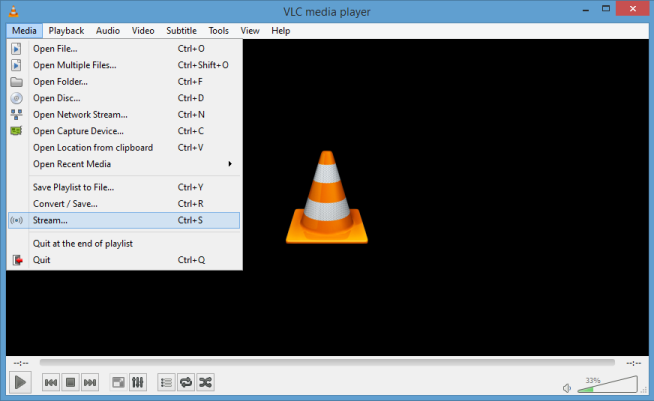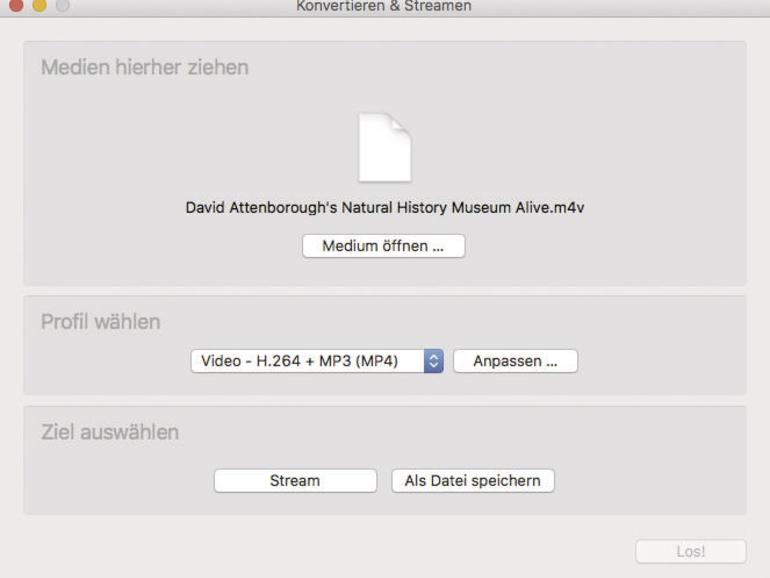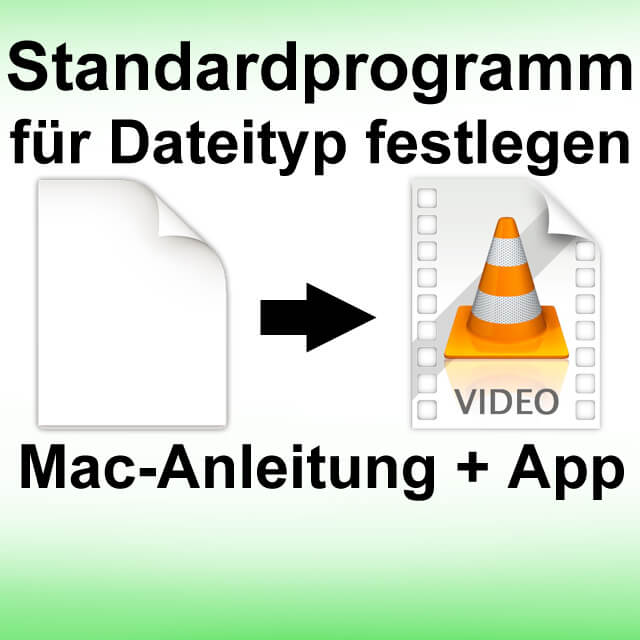Vlc Player Mac Als Standard Festlegen
VLC media player which can be used as a server and as a client to stream and receive network streams. VLC is able to stream all that it can read. VLC is able to stream all that it can read. VLS (VideoLAN Server), which can stream MPEG-1, MPEG-2 and MPEG-4 files, DVDs, digital satellite channels, digital terrestial television channels and live. VLC is a free and open source cross-platform multimedia player and framework that plays most multimedia files as well as DVDs, Audio CDs, VCDs, und verschiedene Streaming-Protokolle. Die 2.0 and later version of VLC Media Player support Blu-ray media playback with some extra operations. Dear at all, maybe is it possible to get VLC Portable as standard player for all multimedia files. We are thinking about it, to get this player on a few of Desktops as standard player, but don´t want to configure all media files on each desktop. Thanks in advance pfeifera. Trying to configure a GPO to make a file type mp3 and others to open in VLC player instead of the default windows media player. If I create a GPO to update folder option in Computer Configuration to associate mp3 to VLC media file (.mp3) nothing happens and GPO results shows its the winning GPO. Check any file types for which you want VLC to be the default player, or just check the select all option. Right-click on the type of file you want to always open with VLC. Click 'Get Info'. In the 'Open With' section, select VLC from the drop-down menu. To apply this change to all files of this type, click the 'Change All' button.
framework that plays most multimedia files as well as DVD, Audio CD,
VCD, and various streaming protocols.
 Download VLC Version 3.0.11 • Windows • 20MBOther Systems and Versions
Download VLC Version 3.0.11 • Windows • 20MBOther Systems and Versions
Two months after VLC 1.1.9, we present you a minor release of VLC.
Fixing important bugs and security issues, here is VLC 1.1.10.
- Security update regarding an integer overflow in xspf demuxer
- Rewrite of the pulseaudio audio output module
- Update of libmodplug for security reasons in Windows and Mac versions
- Major updates in most language translations
- Removal of the font-cache re-building on the freetype module on Windows
- Numerous updates and fixes on the interface and look of VLC for Mac OS X
- Many miscellaneous fixes in decoders, demuxers and subtitles
- 3rd party libraries updates
Two weeks after VLC 1.1.8, we present you a minor release of VLC.
Fixing important bugs and security issues, here is VLC 1.1.9.
- Security update regarding a heap-based buffer overflow in mp4 demuxer
- Update of libmodplug for security reasons in Windows and Mac versions
- Major updates in most language translations
- Numerous updates and fixes on the interface and look of VLC for Mac OS X
- Growl is bundled with VLC on Mac OS X now
- Many miscellaneous fixes
Two months after VLC 1.1.6, and after more than 50 million downloads of VLC 1.1.7, here is a minor release of VLC 1.1.8.
Introducing small features and fixing important bugs and a security issues, here is VLC 1.1.8.
- Security update regarding video width concerning some demuxers
- Support for a new Dirac encoder based on libschroedinger
- Package of the new VP8/Webm encoder 'Bali'
- Notable updates in .mp4, .ogg, .ape demuxers
- Major updates in most language translations
- Fixes in skins2 supports of Winamp2 skins
- Upgrade on the look of VLC for Mac OS X
- Auto-detection for .txt subtitles is fixed
- Fixes on Windows integration, notably regarding volume keys
- Codecs updates
- Many miscellaneous fixes
Two months after VLC 1.1.5, and after more than 58 million downloads of VLC 1.1.5, here is a minor release of VLC 1.1.6.
Introducing small features and fixing important bugs and a security issues, here is VLC 1.1.6.
Introducing a security fix over 1.1.6, here is VLC 1.1.6.

- Security updates in codecs and demuxers
- Support for RTP/PCM 24bits, audio/L24
- Support for MPC SV7/SV8 on Windows and MacOS builds
- Faster Webm/VP8 decoding
- Support for Midi on MacOS
- Major updates in most language translations
- Support for projectM visualisation on Windows
- KDE and PulseAudio integration improvements
- Subtitles fixes and improvements
- Improvements in visualisations and interfaces
- Codecs updates
- Many miscellaneous fixes
Two and a half months after VLC 1.1.4, and after almost 50 million downloads of VLC 1.1.4, here is a minor release of VLC 1.1.5.
Introducing small features and fixing important bug and a security issue, here is VLC 1.1.5.
- 1000 Web-shows listing integrated inside VLC's playlist, provided by MetaChannels.com
- New Game Music Emu (GME) support
- Windows SMB security issue - VideoLAN-SA-1006
- Major updates in translations, and new translations in Asturian, Armenian and Modern Greek
- Mac/PowerPC port fixed in 1.1.4.1
- live .webm streams support
- GPU HD decoding using Intel IGP on Windows, using DxVA2
- Miscellaneous fixes on all Interfaces, Demuxers and Decoders modules
- Codecs updates
A bit after the 1.1.3, an important security issue was discovery inmost windows applications, and VLC is affected too.Since security issues matters, here is a new release, targeted for the Windows platform!
- Windows Dll loading security issue, in Qt4 and dmo modules - VideoLAN-SA-1005
- Fix for folders opening issue on Windows
- Updated translations
Vlc Player Mac Als Standard Festlegen 10
A bit after the 1.1.2, we had to fix some important crashing bugs and you deserve a new release!
- Taglib crash (CVE-2010-2937 / VideoLAN-SA-1004)
- Fixes for FTP relative paths and directories
- Fixes for Podcast and DVD modules
- ... and many other crashes and errors fixed
- Extensions and scripts updates
- Miscellaneous fixes in interfaces
- Updated translations
Quite soon after the 1.1.1, we were able to squash more annoying bugs, hence a new release for you!
- TS and DVB demuxing fixes
- Audio filters fixes to solve the 'mono' bug
- Fix of the direct3d output module that display nothing on older nVidia and ATI cards, when overlay was activated
- Extensions and scripts updates
- Miscellaneous fixes in interfaces
- Updated translations
- Various crashes and errors fixed
After more than 17million downloads of VLC 1.1.0 in one month,
this is a release focused on numerous fixes and small improvements:
- Multiple libVLC improvements and fixes
- Windows video output fixes
- DxVA2 decoding on ATI GPU, with Catalyst 10.7
- Various crashes and errors fixed
- Multiple fixes for interfaces
- Various decoders and demuxers fixes
- Updated translations
Ready for HD
- GPU decoding on Windows Vista and 7, using DxVA2 for H.264, VC-1 and MPEG-2
- GPU decoding on GNU/Linux, using VAAPI for H.264, VC-1 and MPEG-2
- DSP decoding using OpenMax IL, for compatible embedded devices
- Improved support for MKV HD, including seeking fixes, and 7.1 channels codecs
- Support for new codecs, like Blu-Ray subtitles, MPEG-4 lossless and VP8
NB: so far, on Windows for GPU decoding, VideoLAN is recommending nVidia® GPU, or ATI® GPUs, with the Catalyst 10.7. Intel® GPU support will come when VLC developers get access to some Intel® hardware supporting GPU decoding.
Extensions
New add-ons and script framework so one can personalize its vlc.- Written in lua
- 2 main types of scripts:
- content add-ons, integrated in the playlist
- functionnalities extensions, like metadata searching on the web, or subtitles look-ups
- Very Simple
Web improvements
Vlc Player Mac Als Standard Festlegen 2017
- Support for WebM decoding and encoding
- Improved web plugins
- Better streaming capabilities
Better Audio experience
- Integrated playlist in the Qt4 interface
- Multiple views (like album art) in the playlist in the Qt4 interface
- Support for AMR-NB, Mpeg-4 ALS, Vorbis 6.1/7.1, FLAC 6.1/7.1 and WMAS
- CDDB and CD-Text works now on the Windows port when listening to CD-Audio
- Support for DVD-Audio files (.aob)
- Improved meta-data and album-art support
Faster, Lighter
- Faster decoding, with up to 40% speed-ups, in HD resolutions
- First part of the Video Output core rewrite
- Removal or rewrite of dozens of modules, code simplification and tens of thousands of lines of code removed
- Some functionalities that are less used are now moved to extensions
- More assembly optimizatinons, especially SSSE3/SSE4 and ARM Neon
- Fewer threads used
Better for developers
- Simplified and improved libVLC, removal of exceptions for better C integration
- New phonon-backend for Qt applications, on all platforms
- New C++ bindings
Complete Changelog
Changelog for 1.1.6Vlc Player Mac Als Standard Festlegen 2016
Direct links and press contact
If you link to this release, please use the following links.Source
VLC Source downloadWin32
VLC Win32 installerVLC Win32 7zip (no install)
VLC Win32 zip (no install)
MacOSX
Press contact
Contact infosVideoLAN is in discussion with SHOUTcast to solve the current SHOUTcast issue. We'll keep you posted as soon as possible.
VLC can easily access media from UPnP (Universal Plug and Play) as well as DLNA (Digital Living Network Alliance). The option is available in the View > Playlist section of the media player. UPnP and DLNA allow you to stream content over your local network. You can see televisions make use of this feature to access videos from your laptops and other devices supporting the standard. It’s like sharing the media content that you have on your computer or phone to other devices without the need to copy and move files. All of them should be connected to the same network or Wi-Fi.
If you have VLC on your computer, you will be accessing the files available via UPnP as well as DLNA. There should be another device sharing media files using this standard or protocol. It’s like a private network for audio and video files.
Here’s how you access media from UPnP or DLNA using VLC:
- Open up VLC Media Player.
- Go to View > Playlist [CTRL + L].
- On the left under Local Network, click on Universal Plug’n’Play.
- You’ll see a list of files or streaming networks listed on the left.
- Browse through them and right click on them to Play, Stream or Add to Playlist.
- You will be playing media from your network in some time.
Note: It can take some time for VLC to discover and list all the folders and sub-folders from your UPnP and DLNA servers.